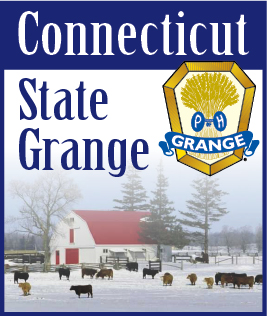| APRIL 8, 2013 -- In the past few weeks, I’ve received a few calls here at the office regarding what many are calling the “Monsanto Protection Act.” There seems to be some confusion about what it is and what it does, so I’m going to try and clear things up.
To begin, its formal name is not the “Monsanto Protection Act.” That’s the name that critics have assigned to Section 735 of the continuing resolution signed by President Obama in March. As a provision of the continuing resolution, Section 735 grants the USDA the authority to TEMPORARILY grant permits or deregulation of a crop whose use is being debated in court. That sounds bad but is really nothing new. In fact, this has been the USDA’s practice for quite sometime, but now it’s on paper and “official.”
Despite what many critics are claiming, this doesn’t mean that the USDA is giving people permission to plant crops that might be dangerous for human consumption or use. A crop or agricultural product could be in litigation for a multitude of reasons, such as inadequate environmental reviews, use permits, or other types of paperwork-related issues. In fact, Section 735 can only be applied to products and crops that have already been approved by the FDA, and therefore safe for human consumption.
Another part that is controversial, and one that maybe I’m not so thrilled about either, is that the Secretary of Agriculture pretty much has all the authority he or she needs to make this call. He or she can forbid the use of a crop or product if they feel it poses a safety risk and they can immediately grant a temporary permit or deregulation to a grower or producer. That’s quite a bit of authority, but then again, sometimes these things need to move fast; like if you’re a farmer ready to harvest a crop and find that the legality of the crop itself has suddenly been called into question. That’s really the logic behind this whole thing: granting farmers and producers the ability, temporary though it might be, to harvest a crop that he or she has already planted and invested substantial time and money into. For example, if a product is involved in a lawsuit because a full environmental study wasn’t properly performed, that’s not the farmer’s fault.
So how did this become an anti-Monsanto issue? Easy: they’re the world’s largest producer of genetically engineered seeds, with over 650 seed patents. Together with Dupont and Syngenta, Monsanto controls over half the world’s seed production. Therefore, it’s likely that many of their products would benefit from the provisions outlined in Section 735. In other words, the biggest target is usually the easiest to hit, although I’m not saying that Monsanto didn’t support this measure and didn’t have a fleet of lobbyists on the Hill pushing it. I’m sure they did, but that’s their right and the right of every other special interest group with a presence on the Hill.
Monsanto, despite its constant controversy, has been paramount in the expansion of new ag technology and has brought some excellent products to the market. We at the Grange, above all else, are advocates of the free market system and support Monsanto’s rights to their many patents. However, and for the record, we are not making judgments about how they choose to enforce those patent rights. The Grange, like many in the ag community, are anxiously awaiting the Supreme Court's ruling on Bowman v. Monsanto, as it has the potential to be a significant game changer for ag production.
I hope I’ve cleared up some of the confusion…or maybe I’ve made it substantially worse. Either way, have a good week everybody.
-Grace Boatright
National Grange Legislative Director |
